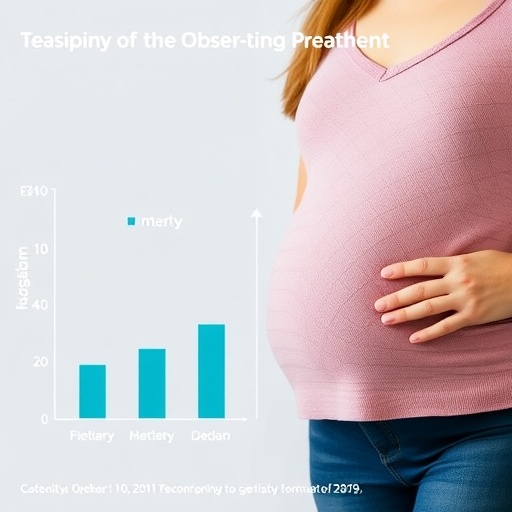In recent years, the rising prevalence of obesity has become a significant public health concern, prompting researchers and healthcare professionals to explore effective treatment options. Among the latest advancements in the management of obesity are the novel medications Tirzepatide and Liraglutide, both of which are designed to aid weight loss when combined with dietary changes and increased physical activity. A recent study conducted by Capehorn, M., Johansson, E., and Davies, A., et al., investigates the cost-effectiveness of these two medications from a UK perspective, providing critical insights into their potential impact on healthcare systems.
The study compares Tirzepatide and Liraglutide, two medications that belong to a class of drugs known as GLP-1 receptor agonists. These medications work by mimicking the action of natural hormones that regulate appetite and glucose metabolism. By activating these pathways, patients experience reduced hunger, increased satiety, and ultimately, significant weight loss. With the growing burden of obesity-related health issues, understanding the economic implications of these treatments is essential for healthcare policy and decision-making.
Tirzepatide, a new entrant in the market, has demonstrated promising results in clinical trials, showing superior weight loss outcomes compared to Liraglutide. The key difference lies in its dual-action mechanism, which not only stimulates GLP-1 receptors but also GIP receptors, leading to a more potent effect on weight reduction. This dual action may offer patients an enhanced opportunity to achieve and maintain significant weight loss, leading to improved overall health.
On the other hand, Liraglutide, an established medication, has been widely used in managing obesity and type 2 diabetes. Its long-term efficacy and safety profile provide reassurance for prescribers and patients alike. Liraglutide has been extensively studied and has cemented its role in the clinical treatment landscape for obesity. However, the emergence of Tirzepatide poses questions regarding its position when considering cost and effectiveness.
The economic evaluation conducted in the study utilizes a UK-specific framework, reflecting the unique context of the National Health Service (NHS) and the country’s healthcare expenditure. Researchers employed a Markov model to simulate the long-term health outcomes and costs associated with both treatments. This model considers factors like medication costs, healthcare resource use, and the broader economic impacts of obesity-related complications, such as cardiovascular diseases and diabetes.
One of the critical findings from the study is the potential for Tirzepatide to be a cost-effective option compared to Liraglutide. The analysis suggests that, despite potentially higher upfront costs, Tirzepatide may lead to greater weight loss and a decrease in obesity-related complications, resulting in lower long-term healthcare costs. This is particularly significant as rising healthcare expenses associated with obesity continue to strain the NHS.
The implications of these findings extend beyond economic factors. With obesity being a complex condition influenced by various biological, environmental, and societal factors, effective treatments are crucial in improving population health. The study not only highlights the cost-effectiveness of Tirzepatide but also underscores the importance of individualized patient care in obesity management. Patients respond differently to various treatments, and understanding which medication offers the best outcomes at the lowest cost can improve overall health and quality of life.
Furthermore, the study contributes to the evidence base for healthcare providers when making treatment recommendations. As new drugs enter the market, healthcare professionals are tasked with integrating these options into clinical practice. This research provides valuable insights into how these medications stack up against one another regarding financial implications and therapeutic efficacy.
Addressing the issue of obesity requires a multifaceted approach, and pharmacological interventions play a vital role. However, it is essential to accompany medication with lifestyle changes, as emphasized in the study. The combination of diet, exercise, and pharmacotherapy has shown to deliver the best outcomes for patients. Thus, sustainable weight management should remain a goal that healthcare providers aim to achieve collaboratively with their patients.
The need for ongoing research is evident, particularly in exploring the long-term impacts of these medications on obesity-related health outcomes. While this study offers significant initial insights, further research evaluating the real-world effectiveness of Tirzepatide and Liraglutide over an extended period is necessary to validate these findings. Understanding how these medications perform in diverse populations and varying healthcare settings will enhance the comprehensive understanding needed for effective obesity management.
In conclusion, the cost-effectiveness analysis by Capehorn et al. provides a critical lens through which healthcare stakeholders can evaluate the economic implications of new obesity treatments. The study emphasizes the potential benefit of Tirzepatide as a cost-effective intervention, with substantial implications for public health initiatives addressing obesity within the UK. As the healthcare landscape continues to evolve, ongoing research will be instrumental in determining the optimal strategies for treating this complex and pervasive health issue.
Commitment to addressing obesity must be a priority in healthcare agendas worldwide. The insights gained from economic evaluations such as this one are invaluable for shaping policy and guiding future research in the field of obesity management. Ultimately, the combination of effective pharmacotherapy, lifestyle modification, and comprehensive patient support will be crucial to turning the tide against obesity and its associated health challenges.
Subject of Research: Cost-Effectiveness of Tirzepatide Versus Liraglutide.
Article Title: Cost-Effectiveness of Tirzepatide Versus Liraglutide, Both Adjunct to Diet and Exercise, for Patients with Obesity or Overweight: A UK Perspective.
Article References:
Capehorn, M., Johansson, E., Davies, A. et al. Cost-Effectiveness of Tirzepatide Versus Liraglutide, Both Adjunct to Diet and Exercise, for Patients with Obesity or Overweight: A UK Perspective.
Adv Ther (2025). https://doi.org/10.1007/s12325-025-03288-3
Image Credits: AI Generated
DOI: 10.1007/s12325-025-03288-3
Keywords: Tirzepatide, Liraglutide, obesity, cost-effectiveness, UK healthcare, GLP-1 receptor agonists, weight loss, pharmacotherapy, public health.




